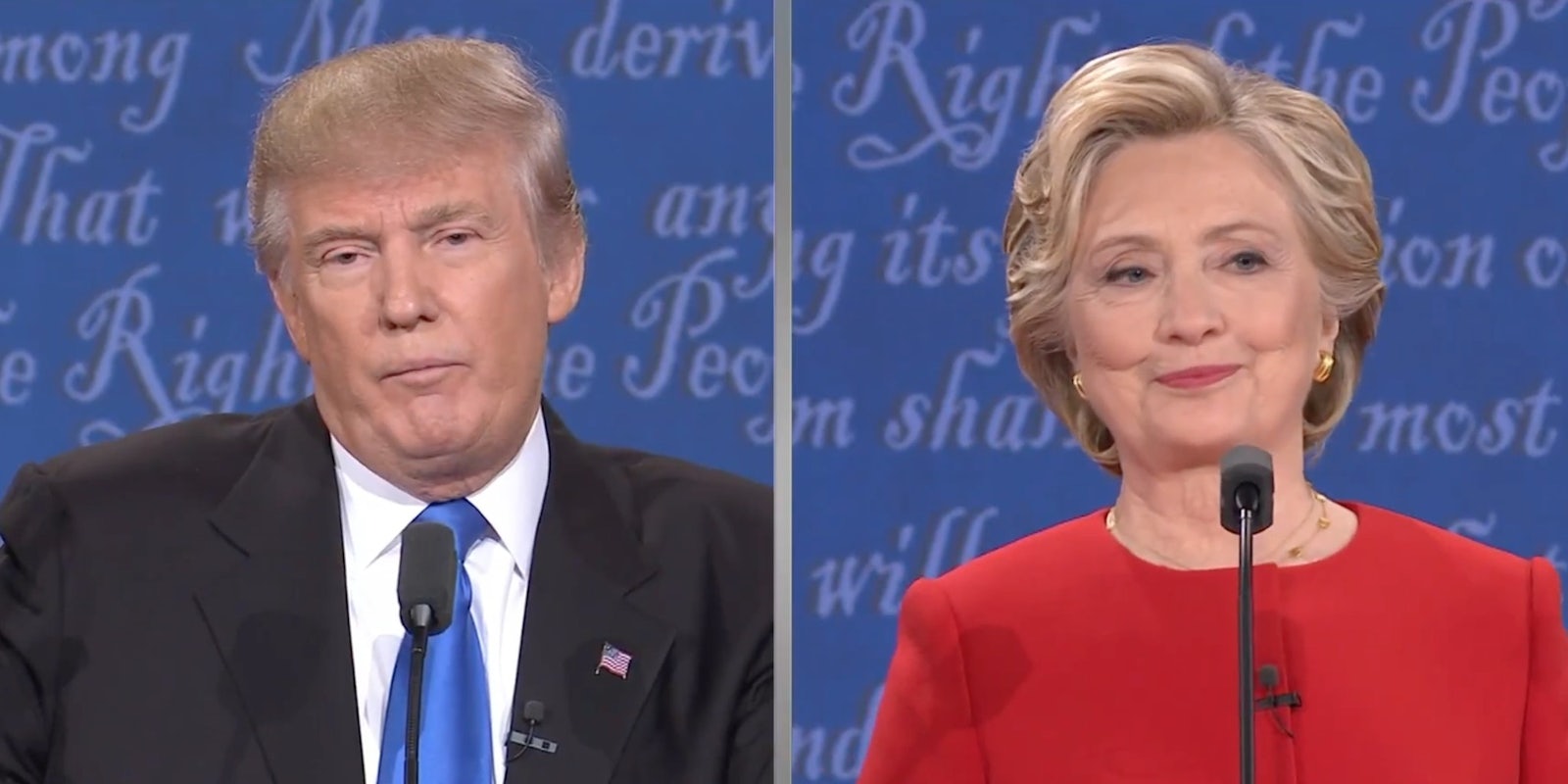Democratic nominee Hillary Clinton solidified her hawkish stance on cyberwarfare during Monday night’s presidential debate by threatening retaliation against Russia for hacks against American targets.
“We don’t want to use the kinds of tools that we have,” Clinton said, “but we will defend the citizens of this country and Russia needs to understand that.”
Clinton offered no specifics about what it would mean to “use the kinds of tools we have” against the Russians. That omission is surely in part a product of the speaking time constraints that all debates have, but it’s a key point that ought to be pressed in the future. She is publicly talking about escalating a conflict with a world power in a way that contrasts with the Obama administration’s relative silence on the issue.
“Whether it’s Russia, China, or Iran, we will let them know we have more capacity,” she said, echoing President Barack Obama‘s statements to the G-20 summit in China earlier this month.
This is not the first time Clinton has proposed military action in response to cyberattacks. Three weeks ago, she explicitly talked about making sure the U.S. is “able to take the fight to those who go after us.”
“The security aspect of cyber is very tough. It’s hardly doable.”
“As president, I will make it clear that the United States will treat cyberattacks just like any other attack. We will be ready with serious political, economic, and military responses,” Clinton said earlier this month. “I want us to lead the world in setting the rules in cyberspace. If America doesn’t, others will.”
Clinton: on cybersecurity: "Donald is very praiseworthy of Putin, but Putin is playing a tough long game here." pic.twitter.com/YNSc7dLC5A
— POLITICO (@politico) September 27, 2016
Putin, for what it’s worth, doesn’t really care who you blame either way.
“Listen, does it even matter who hacked this data?’’ Putin said during an interview with Bloomberg earlier this month. “The important thing is the content that was given to the public.’’
Republican nominee Donald Trump, on the opposite end of Monday night’s debate stage, casted doubt on the idea that Russia hacked the Democratic National Committee at all.
“It could be Russia,” Trump said. “It could also be China, it could also be someone sitting on their bed who weighs 400 pounds.”
Although he peppered his skepticism with that last unforgettable image, Trump is right in one sense. No proof has been offered directly by the U.S. government of Russia’s role in the cyberattacks.
But much of the evidence points to Moscow and, behind the scenes, so do the U.S. government and intelligence community.
Late in Monday’s debate, Clinton used the mention of cybersecurity and hacking to attack Trump’s repeated praise of Russian President Vladimir Putin.
Trump used the moment to pivot to the Islamic State, which has used the internet to preach and propagandize about jihadism to a global audience.
In the past, Trump has proposed “closing the internet up in some way” to solve the problem of ISIS on the internet.
“The security aspect of cyber is very tough,” Trump concluded on Monday night. “It’s hardly doable.”
